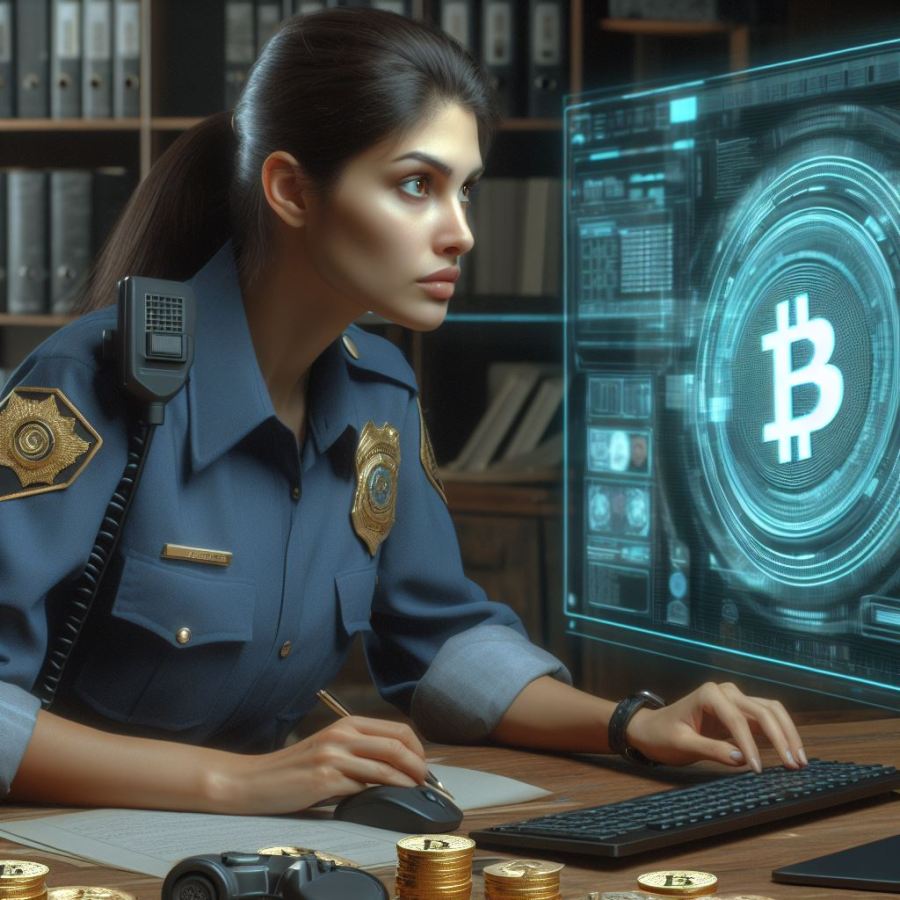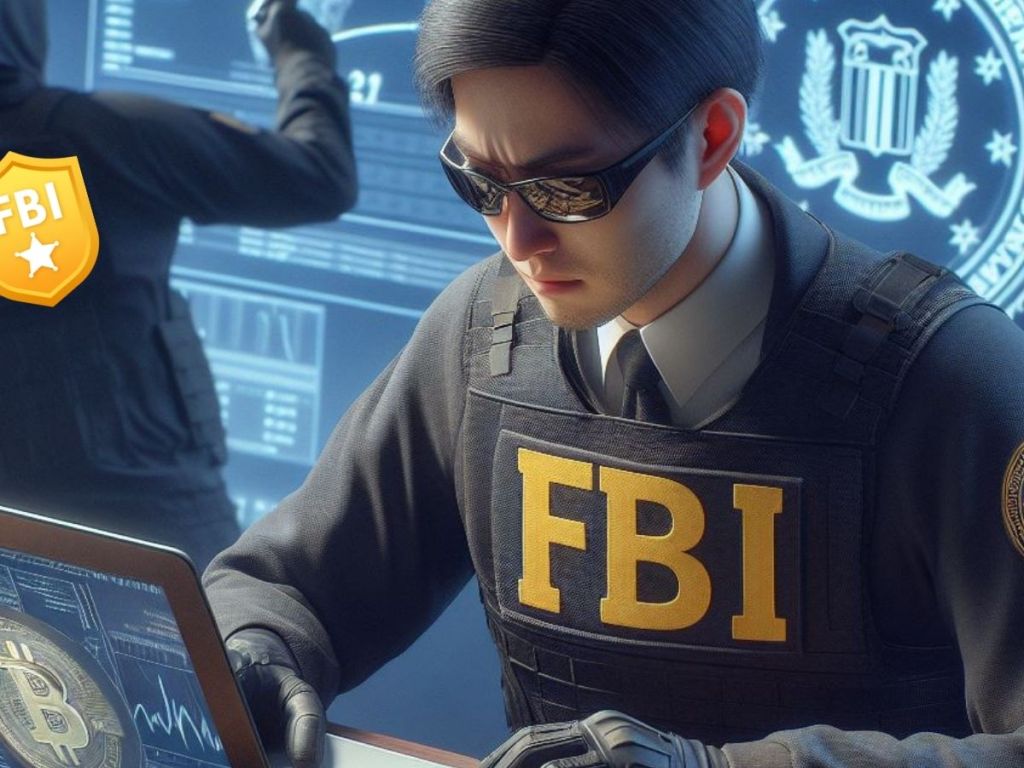An anti- crypto FBI guy has spoken out about his suspicions of both cryptocurrency and NFTs.
You gotta feel for those retired detectives and FBI agents. They have spent their entire careers exposed to the sh*tty side of humans beings, all day every day. So it is understandable that these peeps get very negative about some aspects of life. If you see crypto crime all day long, then of course you are going to see buying crypto as a negative.
In the same way that if you see love scams everywhere, you are going to think the internet is evil. Let’s just include all evil in this basket that FBI guys have to deal with.
Anyhoo the retired FBI agent, named Steve Lazarus, does interesting crime-related TikToks for his faithful audience, because he has a crime novel to hawk. He’s def doing TikTok right though.
Anti-crypto FBI guy: Cryptocurrency suspicions
Lazarus was an FBI Special Agent (before he retired) and he’s also a U.S. Air Force veteran. When in the FBI he was tasked with investigating drug trafficking and violent gangs, and then became a bomb technician. He doesn’t make it clear if he was ever sent out to get the bad guys who fund million-dollar crypto schemes.
Lazarus has a different TikTok for every one of the five things he would never do, but let’s see what he says about cryptocurrency.
Lazarus makes the case that most cryptocurrency and NFTs (non fungible tokens) “look like a Ponzi scheme to me.”
He also says he thinks crypto has zero tangible value. “It’s only worth something if your fellow investors say it is. It has what we call a ‘wide entrance’ and a ‘very narrow exit’, meaning it’s easy to buy, but it’s tough to sell especially during a panic.”
He also adds that it’s a playground for scam artists like Sam Bankman-Fried.
Lazarus has a particular problem with NFTs. He says people pay “obscene amounts of money” for things you can’t touch, or “houses you can’t live in, and land that doesn’t exist”.
While all that is merely opinion, there are many people that think fiat currency is more unpredictable than dencentralised cryptocurrencies like Bitcoin.
Can the FBI help with stolen cryptocurrency?
As it turns out, if you are in the U.S., the FBI can help with stolen cryptocurrency in some cases, but not all. The FBI has an entire team dedicated to preventing and combating cryptocurrency money laundering and frauds.
However, the FBI may not be able to investigate every case of cryptocurrency theft, depending on the dollar amount involved. For example, one victim reported losing US$165,000 (AU$246,000) worth of Ethereum and contacted the FBI. But his loss was not large enough to merit investigation. So it is a bit hit or miss.
Here in Australia, if you get your crypto stolen or you get scammed, you can report it to The Australian Federal Police online or by calling 131 4442. If you got scammed you can report it to The Australian Competition and Consumer Commission’s Scamwatch service.
If you also report the loss to the Australian Taxation Office, and you can claim a capital loss if you can provide evidence of original ownership.

How much Bitcoin does the FBI own?
According to various sources, the FBI is one of the largest holders of Bitcoin in the world, with on-chain data showing that they hold nearly 200,000 BTC, worth more than US$5 billion AU$7.5bn) at the time of writing. It’s hard to verify this, as the FBI must keep its secrets!
The majority of these holdings come from seizures, some of which have been publicised by authorities in the FBI themselves. For example, in February 2022, the Department of Justice announced it had seized 94,636 Bitcoin from a hack of the Bitfinex cryptocurrency exchange.
However, not all of these bitcoins are owned by the FBI. Some are returned to their original owners.
Some of them are held offline in encrypted storage devices that are maintained by the Justice Department. Eventually, they are brought back to the market. For instance, in March 2023, addresses associated with U.S. government law enforcement seizures transferred 9,861 BTC to a Coinbase address and sold them for US$217 million (AU$323m).
How much did Ruja Ignatova make?
One of the most famous crypto scammers is Ruja Ignatova. She is a former entrepreneur who was convicted of fraud in 2019 for running a cryptocurrency scam called OneCoin. This mega-scammer is also known as the “missing Cryptoqueen” because she disappeared in 2017 after being tipped off about police investigations. She is currently on the FBI’s top 10 most wanted list and is wanted for wire fraud, securities fraud and money laundering.
OneCoin claimed to be a revolutionary digital currency that would replace Bitcoin, but it was actually a pyramid scheme that paid commissions to its members for recruiting new investors. The scheme defrauded thousands of people around the world, including celebrities like Lionel Messi and Peter Thiel. The total amount of money lost by OneCoin investors is estimated to be over $4 billion. Ignatova’s whereabouts are still unknown.
With Ponzi schemes like this around, it’s no wonder the FBI guys are suspicious of crypto. The message here is perhaps, do your own research, peeps!
NFTs: Don’t overthink them anti-crypto FBI guy
While Lazarus seems to think that NFTs are the worst thing that happened to humanity, the thing to remember about NFTs is that some people collect them because it makes them happy.
Much like trading cards, NFTs can be rare and it is this scarcity that makes them valuable in collectors’ minds.
NFTs are digital, meaning that they exist only in the form of data stored on a blockchain network. Trading cards are physical, meaning that they exist in the form of paper or plastic with a barcode or hologram attached to them.
This makes NFTs more accessible and convenient, while trading cards are more tangible and collectible.
This may be Lazarus giving out Boomer vibes here, but of course, never spend any money on crypto or NFTs that you can’t afford to lose.





